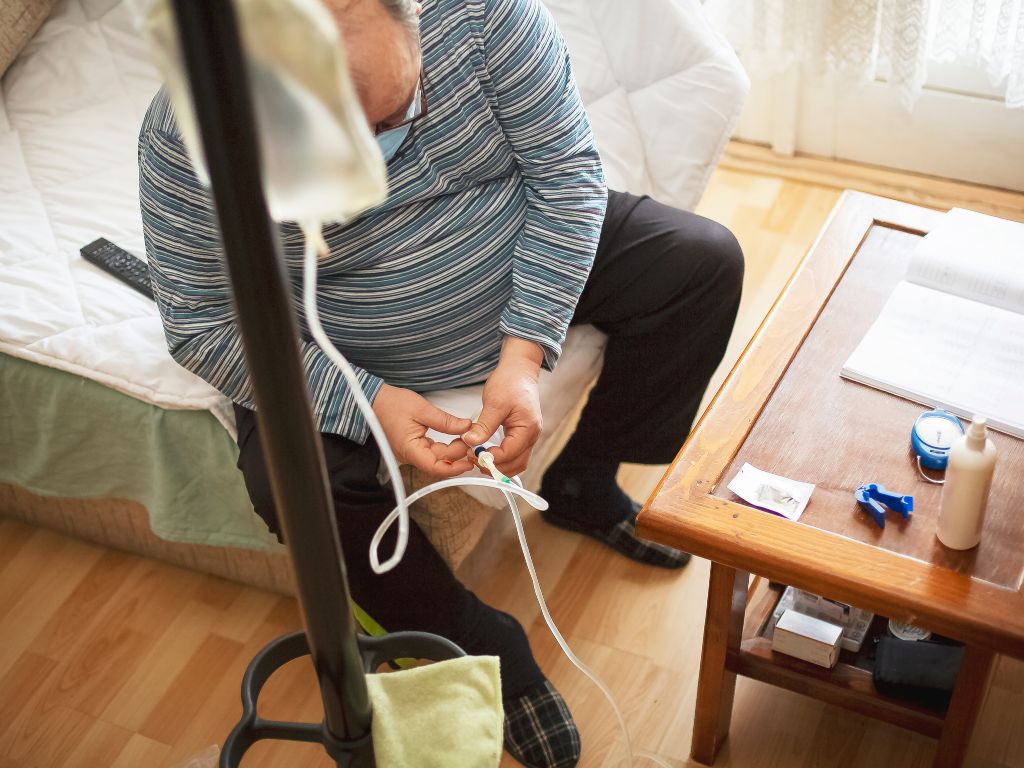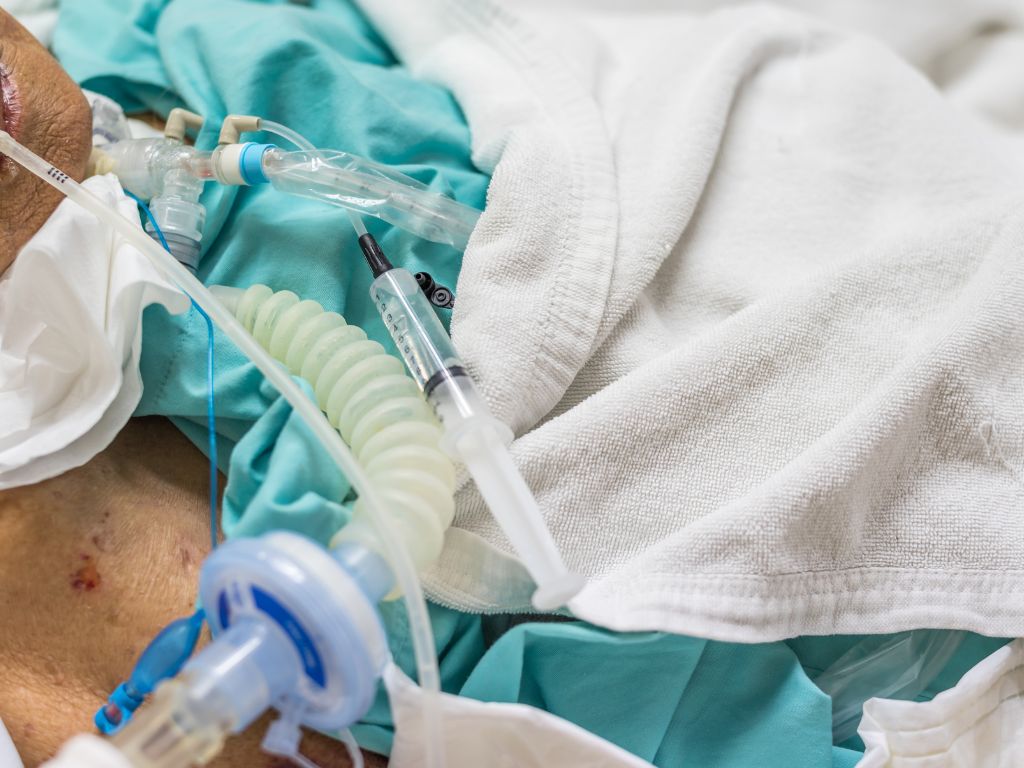Skills for Care has published new guiding principles and supporting resources for the completion of delegated healthcare tasks.
 The workforce development charity for adult social care has worked with the Department of Health and Social Care (DHSC) and other partners to co-develop the voluntary guiding principles.
The workforce development charity for adult social care has worked with the Department of Health and Social Care (DHSC) and other partners to co-develop the voluntary guiding principles.
The principles, which will support person-centred, safe and effective delegation of healthcare tasks, are designed to be adapted locally to complement existing best practice and local protocols.
Delegation of key healthcare tasks is not new and has been taking place within care environments for several years, but clear guidance was found to be lacking.
Skills for Care states that successful delegation of healthcare activities to social care workers can “enable people to have more choice and control of when and how things happen, with an opportunity to provide a better experience of care.”
They explain that delegation of healthcare tasks can have a positive impact for all involved providing the right learning and development, skills, competency, supervision and governance are in place.
Guiding principles for delegated healthcare tasks
 The new voluntary guiding principles include how to create the right conditions for successful delegation and highlight the importance of maintaining a person-centred approach and putting the person receiving care and support at the heart of decision-making.
The new voluntary guiding principles include how to create the right conditions for successful delegation and highlight the importance of maintaining a person-centred approach and putting the person receiving care and support at the heart of decision-making.
Skills for Care and DHSC have also developed a range of supporting resources, including a sample policy developed with the National Care Forum and their members to help social care providers to evidence their decision-making and governance when considering delegation.
In addition, they have also produced supporting sample policy information on wound care, clinical observations and catheter care, which can all be incorporated into the delegated healthcare sample policy.
Other supporting resources available to download from Skills for Care’s website include:
- Decision tree for delegation
- Delegated healthcare activities governance toolkit and supporting templates
- Delegated healthcare activity guide for social care employers and managers
- Delegated healthcare activity guide for social care workers
Skills for Care are seeking feedback on the new guiding principles to establish what does and doesn’t work within their supporting resources. Suggestions for improvements can be sent to delegatedhealthcare@yorkconsulting.co.uk.
What are delegated healthcare tasks?
 Often referred to as delegated healthcare interventions, these are any healthcare activities, usually of a clinical nature, that a registered healthcare professional transfers to a paid social care worker. This could include Personal Assistants (PAs) providing care and support to adults or children with specific healthcare needs.
Often referred to as delegated healthcare interventions, these are any healthcare activities, usually of a clinical nature, that a registered healthcare professional transfers to a paid social care worker. This could include Personal Assistants (PAs) providing care and support to adults or children with specific healthcare needs.
The registered healthcare professional is responsible for ensuring the delegation is appropriate and that the care worker is suitably trained and competent to carry out the healthcare intervention.
Examples of delegated healthcare tasks could include:
- Administering insulin to individuals who have diabetes
- Assisting PEG feeding
- Basic stoma care
- Urinary catheterisation
Why are delegated healthcare tasks needed?
 Delegation can be an effective tool for helping nurses to manage their many responsibilities.
Delegation can be an effective tool for helping nurses to manage their many responsibilities.
Particularly during times when healthcare professionals are overstretched and under-resourced, enabling care workers to manage clinical needs normally only met by skilled nurses helps to build capacity back into the system.
In short, delegation of healthcare interventions can help ease the burden on nurses while still ensuring that individuals receive the daily care they require in a timely manner. In the case of upskilling the PA workforce, it can also provide individuals with complex health needs with more flexibility, choice and control over their care.
The Covid-19 pandemic has undoubtedly led to an increase in delegated healthcare interventions. They can be seen as representative of the changing landscape of care.
What are the barriers to effective delegation?
Although introduced to ease the burden on registered clinicians, effective delegation of healthcare tasks does require a certain amount of infrastructure, funding and time in order to ensure:
- Suitable training
- Ongoing advice, support and supervision
- Regular competency checks
- Regular reviews of the individuals’ care
- Response to emergency situations
 Crucially, the successful delegation of clinical tasks also requires care workers and PAs who are willing to undertake specialist training and carry out these important clinical interventions. They must feel safe, supported, confident and competent when it comes to delivering the intervention.
Crucially, the successful delegation of clinical tasks also requires care workers and PAs who are willing to undertake specialist training and carry out these important clinical interventions. They must feel safe, supported, confident and competent when it comes to delivering the intervention.
Research conducted by Skills for Care in 2022 found strong support for delegation. Respondents broadly agreed that, when done appropriately and safely, it had benefits for care workers, registered healthcare professionals and the individuals accessing care and support services.
However, they also cautioned that “interpretations of delegation across the sector are varied and that the structures and processes for delegation are fragmented.” Governance and accountability, in particular, were found to be “variable and patchy.”
What support is available for delegated healthcare tasks?
This research report was one of the driving factors behind the development of the new definitive guidance from Skills for Care, DHSC and key partners to support the safe, consistent and effective delegation of healthcare interventions.
NHS England has also developed a guide specifically about the delegation of healthcare tasks to PAs.
NICE have also developed a guide to delegation which is aimed at registered healthcare professionals.
The Royal College of Nursing also provides advice about delegation and accountability.
Addressing some of the issues
First Response Training has been delivering a range of health and social care training interventions for over two decades.
For more than half of that, they have worked in close partnership with national learning disability care provider Dimensions (UK) Ltd. Many of Dimensions’ staff are required to carry out delegated healthcare interventions for the people they support, but Dimensions were finding it increasingly difficult to secure appropriate training for their workforce.
Eventually, Dimensions turned to FRT.
Amy Ridge, General Manager at FRT, explains:
“We have worked closely with Dimensions to develop a specialist suite of training in delegated healthcare tasks, which is delivered by highly experienced and competent practitioners. The training includes relevant clinical training equipment, practical simulation activities, assessments and competency sighttps://www.firstresponsetraining.com/health-and-social-care-courses/delegated-healthcare-tasks/n off.
“Competence remains, however, subject to ongoing development and monitoring within the workplace and registered clinicians should still perform regular competency checks and supervision of care workers.”
For more information on the training that FRT can provide in delegated healthcare tasks, contact them today on freephone 0800 310 2300 or e-mail info@firstresponsetraining.com.
